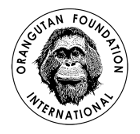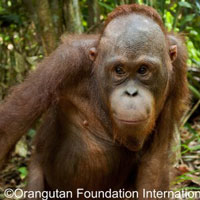Dewa is a now a nine year old male orangutan who stole my heart on my very first day of volunteering in 2012 at OFI’s Orangutan Care Centre and Quarantine in Pasir Panjang, Kalimantan Tengah, Indonesia. In just one week Dewa and I became special friends. It has been such a delight getting to spend… Continue reading Orangutan of the Month: “Dewa”

